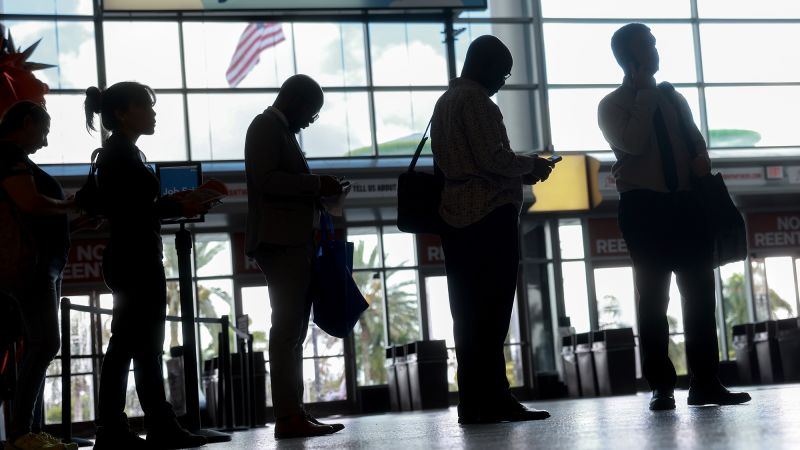CNN
—
The number of available jobs in the US unexpectedly grew in May, signaling continued resilience in the nation’s labor market.
Job openings jumped higher to 8.14 million in May, from a downwardly revised 7.91 million in April, according to the Bureau of Labor Statistics’ latest Job Openings and Labor Turnover Survey (JOLTS) report released Tuesday.
Economists had expected openings would fall to 7.91 million, according to FactSet consensus estimates.
Despite the uptick in job postings, May’s JOLTS report reflected a significant milestone for the US labor market: The ratio of job openings to those who are unemployed fell to 1.22 available jobs per job seeker, matching the figure seen in February 2020.
“The report was another sign that the labor market is holding firm,” Robert Frick, corporate economist with Navy Federal Credit Union, said in a statement issued Tuesday. “So far there are no indications that job growth will flag this year, so consumer spending power will continue to increase and the expansion looks solid.”
Other seasonally adjusted measures of labor turnover showed continued stability in the US jobs market, which has gradually cooled in recent months while remaining historically strong in recent months.
The estimated number of hires moved up to 5.76 million from 5.62 million in April; layoffs and separations bounced higher to 1.65 million in May, up from 1.54 million; while the number of voluntary quits inched upward to 3.46 million from 3.45 million.
While both hires and job openings rates (as a percentage of total employment) ticked higher for May, the quits rate and layoffs rate were unchanged.
Economists have been closely watching the quits rate — which has held steady at 2.2% for seven months running — as it serves as a signal for workers’ willingness to test the labor market’s waters. When people switch jobs, that typically can correlate to bigger pay bumps, which in turn potentially could make it more difficult to rein in inflation.
This story is developing and will be updated.








:max_bytes(150000):strip_icc()/roundup-writereditor-loved-deals-tout-f5de51f85de145b2b1eb99cdb7b6cb84.jpg)


